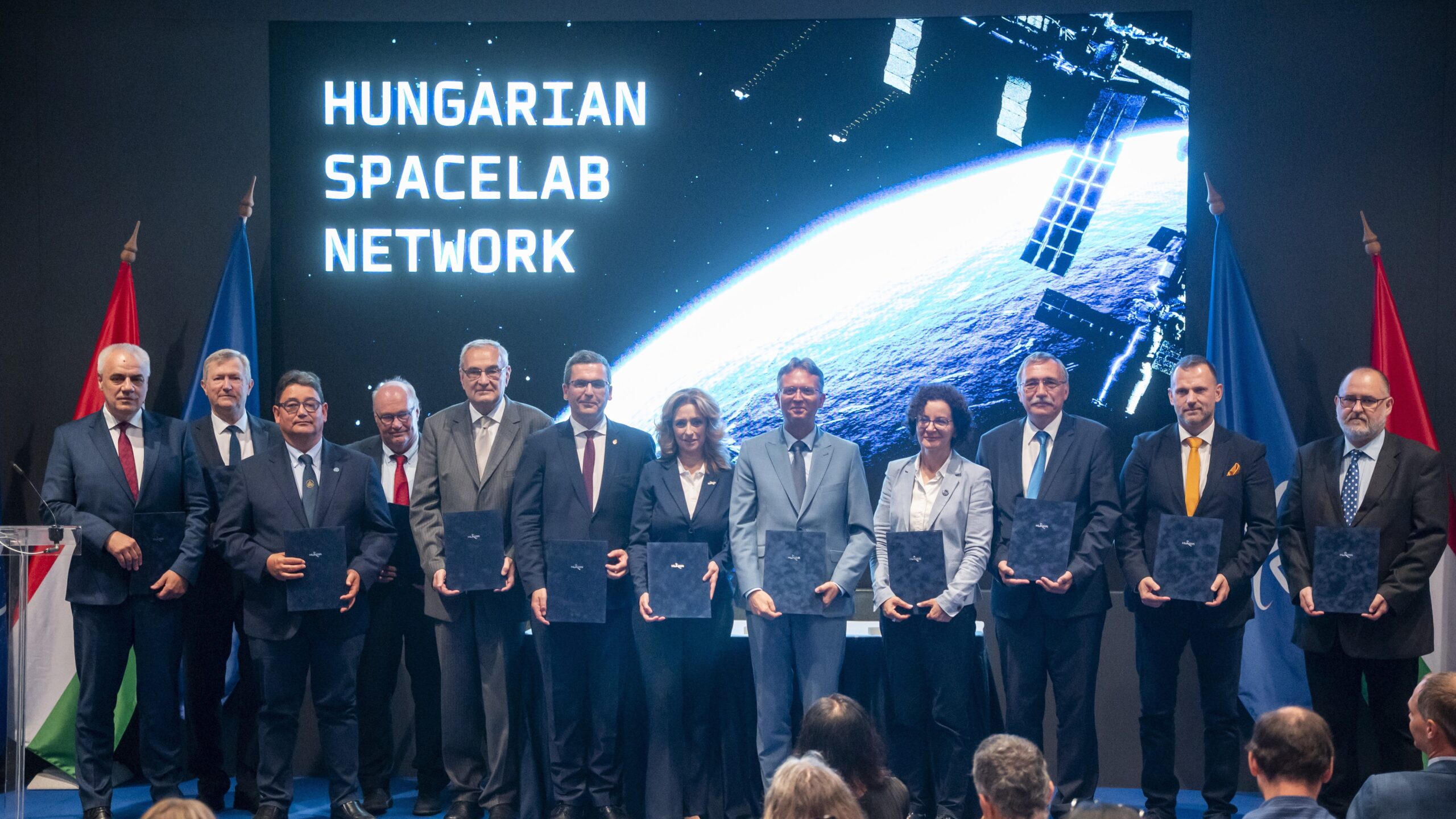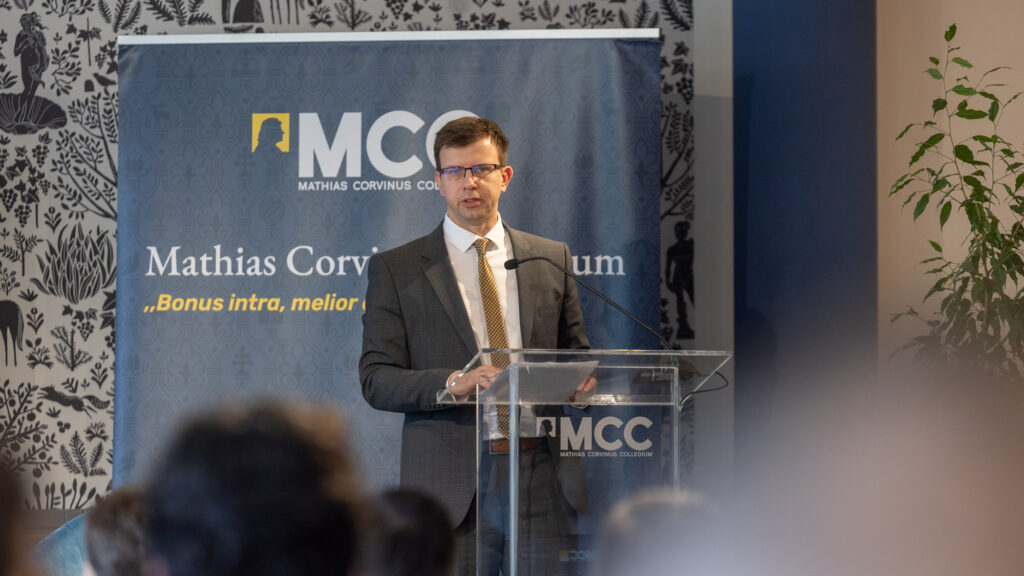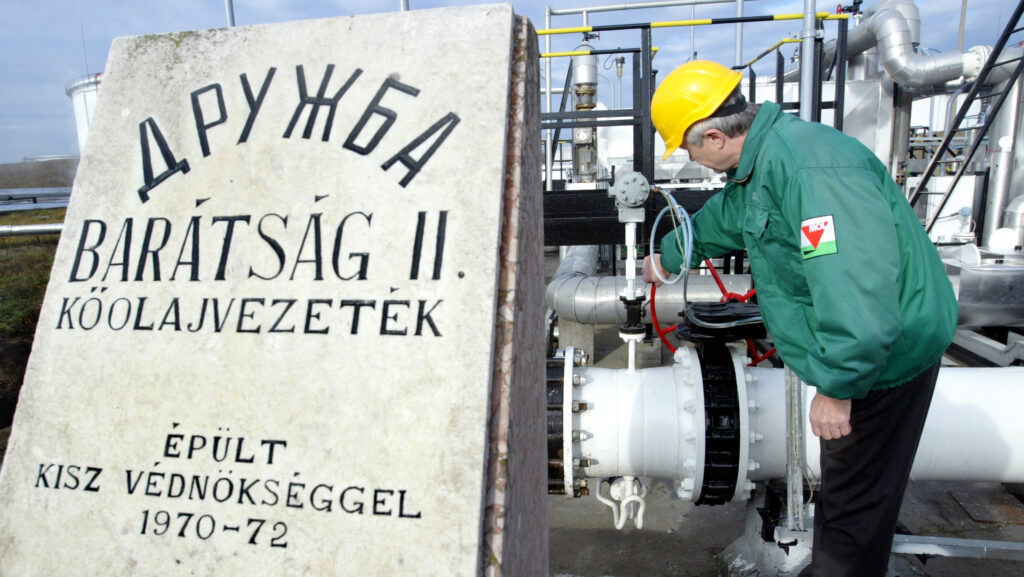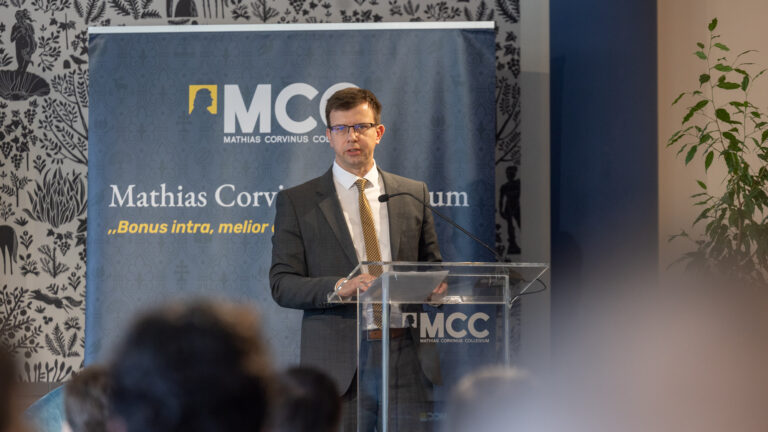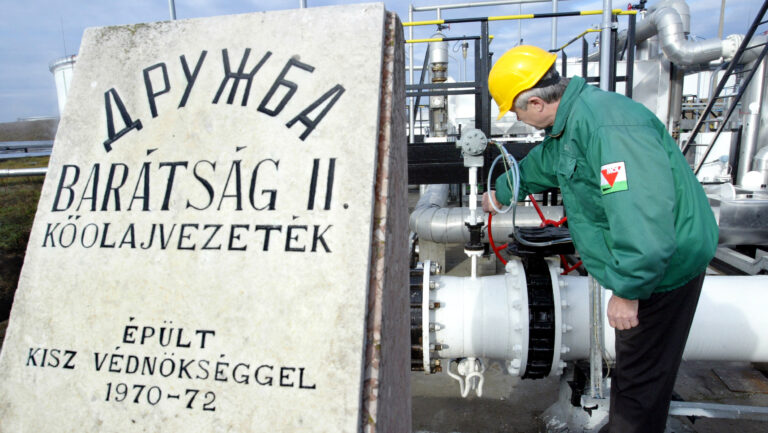A new alliance named the Hungarian Spacelab Network has officially been launched in Budapest, uniting nine universities, two government ministries, and the HUN-REN Research Network. The agreement marks a major step in Hungary’s ambition to become a key player in the global space industry.
At Monday’s signing ceremony, Minister of Culture and Innovation Balázs Hankó emphasized that a country’s scientific excellence is increasingly measured by its role in space exploration. ‘We’ve made significant progress in recent years,’ he stated, pointing to Hungary’s growing visibility in space science and industry.
Hankó recalled the early scepticism surrounding the HUNOR astronaut programme, which has since become a flagship success. He credited its achievements to strong collaboration between the Ministry of Foreign Affairs and Trade, the Ministry of Culture and Innovation, Hungarian universities, and the HUN-REN network.
Through the UniSpace programme, participating universities are expanding their research into space-related fields, including space medicine, aerospace engineering, and space nutrition. Hankó described the new Spacelab Network as a continuation of this scientific progress, building on the foundations laid by experiments conducted by Hungarian astronaut Tibor Kapu.
Orsolya Ferencz, Ministerial Commissioner for Space Research, highlighted the HUNOR programme as a world-class team effort that has evolved into a unifying national mission. ‘In this rapidly advancing industry, we are writing 21st-century history in space,’ she said. She underscored the importance of retaining and attracting talent by offering substantial research opportunities in Hungary.
‘In this rapidly advancing industry, we are writing 21st-century history in space’
Ferencz called the launch of the national scientific lab network a ‘huge opportunity’, not only for fostering new discoveries but also for building a self-sustaining ecosystem of researchers and experts.
Levente Kovács, rector of Óbuda University, explained that the Hungarian Spacelab Network includes institutions that have shown exceptional commitment and research potential within the HUNOR programme. These universities aim to showcase their capabilities to the global scientific community.
Participating institutions include the University of Miskolc, Eötvös Loránd University (ELTE), University of Pécs, Óbuda University, Széchenyi István University, Semmelweis University, University of Szeged, Budapest University of Technology and Economics (BME), and University of Debrecen.
The Hungarian Spacelab Network aims to foster cutting-edge research, enhance collaboration, and place Hungary on the map of international space science.
Related articles:

